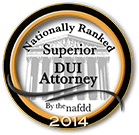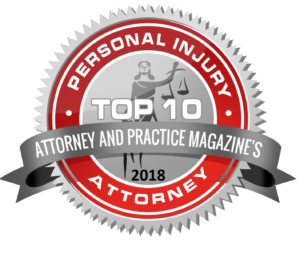Accidents involving vehicles, whether on the road or in the water, can lead to life-altering consequences. In Virginia, both boat accidents and car accidents are common occurrences, yet the circumstances surrounding each differ in significant ways. While both types of accidents can result in personal injuries, property damage, and even fatalities, the legal frameworks governing them are distinct. Understanding the similarities and differences between boat and car accidents is essential for victims who seek to navigate the legal process and protect their rights. NovaLegalGroup, P.C. provides skilled legal representation for individuals involved in boat accident cases, ensuring they receive the guidance and support needed to navigate the complexities of their claims.

Understanding Liability in Boat and Car Accidents
Liability is a crucial element in both boat and car accidents in Virginia. Whether on the road or on the water, determining who is at fault plays a major role in personal injury claims and insurance settlements. In car accidents, Virginia operates under a traditional fault-based system. This means that the person who caused the accident, whether through reckless driving, speeding, or violating traffic rules, is held responsible for the damages.
Similarly, boat accidents also require determining fault, but the rules governing these incidents are often less straightforward. Boat operators are expected to follow boating safety rules, just as drivers must adhere to traffic regulations. However, the complexities of maritime law can make assigning liability more challenging. For instance, factors like weather conditions, water currents, and the experience level of boat operators often play a role in determining fault. The standards of care required of boaters differ from those expected of drivers, which makes understanding the nuances of liability in boat accidents even more critical for accident victims.
Another significant difference between boat and car accidents in Virginia involves the process of determining negligence. In car accidents, drivers are typically judged based on whether they followed state traffic laws. In contrast, boaters must adhere to both federal and state boating regulations, which can complicate negligence determinations. For instance, violations of Coast Guard regulations may come into play in boat accidents, adding a layer of complexity not typically present in car accident cases.
Types of Injuries in Boat and Car Accidents
The types of injuries that result from boat and car accidents often differ due to the nature of the vehicles involved. Car accidents tend to involve high-impact collisions, which can lead to severe injuries like whiplash, broken bones, spinal cord injuries, and traumatic brain injuries. These injuries often occur because of the force of two vehicles colliding, and the occupants of the cars are at risk of being thrown into parts of the vehicle or even out of the car if they are not properly restrained.
Boat accidents, on the other hand, often involve different types of trauma. Drowning is a leading cause of death in boat accidents, particularly if individuals are not wearing life jackets. Additionally, boat accident victims may suffer from hypothermia, especially if the accident occurs in cold water. Other common injuries include cuts, bruises, and fractures caused by being thrown around the boat during a collision or when a boat capsizes. The open environment of a boat means that passengers are often more vulnerable to being thrown into the water, where they are at risk of further harm.
Though the injuries in both types of accidents can be severe, the legal process of seeking compensation for these injuries may differ depending on the specific circumstances of the accident. For instance, in boat accidents, the question of whether passengers were wearing life jackets or whether the boat was equipped with proper safety equipment may become key issues in determining the level of liability. In contrast, in car accidents, factors like seatbelt use and whether airbags deployed correctly may be more relevant to a personal injury case.
Insurance Coverage and Compensation in Boat and Car Accidents
Insurance plays a crucial role in both boat and car accident claims, but the coverage and claims processes can differ. In Virginia, drivers are required to carry auto insurance that includes liability coverage for bodily injury and property damage. In the event of a car accident, the injured party can file a claim with the at-fault driver’s insurance company to seek compensation for medical bills, lost wages, and other damages.
Boat insurance, however, is not mandatory in Virginia, although many boat owners choose to purchase it for protection. This means that if a boat accident occurs, victims may have fewer options for recovering compensation if the boat owner does not have insurance. Even when boat owners do have insurance, the policies often differ from auto insurance policies in terms of what is covered and the limits of liability. For instance, boat insurance may not cover certain types of accidents, such as those caused by unlicensed operators or accidents that occur when a boat is being used for commercial purposes.
Additionally, recovering compensation in boat accident cases can be more complex due to the involvement of federal maritime laws. These laws may come into play, especially if the accident occurs in navigable waters. In such cases, the legal framework for determining liability and compensation may differ significantly from state-level personal injury laws that govern car accidents. Victims of boat accidents may need to navigate these complex legal issues to ensure they receive fair compensation for their injuries.
Regulations and Legal Frameworks Governing Boat and Car Accidents
Another important distinction between boat and car accidents in Virginia involves the regulations that govern each type of vehicle. Car accidents are primarily governed by state traffic laws, which set clear guidelines for safe driving practices. These laws include speed limits, rules of the road, and regulations related to impaired driving. Drivers who violate these laws can be held liable for any accidents they cause, and the legal process for seeking compensation is well-established.
In contrast, boat accidents may be governed by a combination of state boating laws and federal maritime laws. The Virginia Department of Wildlife Resources (VDWR) enforces state boating laws, while the U.S. Coast Guard oversees federal maritime regulations. These laws cover a range of issues, including boating under the influence, the proper use of navigational aids, and the safety equipment that must be on board a boat.
The dual legal frameworks that apply to boat accidents can make the legal process more complicated for victims. In some cases, victims may need to file claims under both state and federal laws, depending on where the accident occurred and the circumstances surrounding it. This differs from car accident cases, which are typically handled under Virginia’s state-level personal injury laws.
Choosing a Personal Injury Attorney Personal Injury Case TimelineRelated Videos
One of the most significant regulatory differences between boat and car accidents involves the laws related to impaired operation. Virginia has strict laws against driving under the influence of alcohol or drugs, and the legal limit for blood alcohol concentration (BAC) is 0.08 percent for drivers. These same limits apply to boat operators in Virginia, and boating under the influence (BUI) is a serious offense. However, the enforcement of BUI laws can be more challenging than DUI enforcement on the road, as boat operators are often not subject to the same level of law enforcement scrutiny as drivers.
Environmental Factors in Boat and Car Accidents
The environment in which an accident occurs plays a significant role in both boat and car accidents. Car accidents typically happen on highways, streets, or other controlled environments where traffic laws and signals regulate the flow of vehicles. These environments are relatively predictable, and drivers are expected to follow clear rules designed to reduce the risk of accidents.
Boat accidents, on the other hand, often occur in open water, where the conditions can change rapidly and unpredictably. Weather, tides, and other environmental factors can all contribute to the likelihood of a boat accident. For instance, a sudden storm or a strong current can cause a boat to capsize or collide with another vessel. Additionally, boat operators must navigate areas with limited visibility and the presence of other watercraft, which can increase the risk of an accident.
Successful Cases
The lack of clear boundaries and traffic signals on the water also makes boat accidents more challenging to prevent. While there are navigational aids and rules of the water, boat operators have far more freedom to move in any direction compared to drivers on the road. This freedom, combined with the often unpredictable nature of water environments, increases the complexity of boating safety compared to road safety.
Although boat and car accidents in Virginia share some similarities, the differences between them are significant. From the types of injuries sustained to the legal frameworks governing each type of accident, victims of boat and car accidents face unique challenges when seeking compensation. Whether on the road or in the water, individuals involved in accidents need to understand their legal rights and responsibilities.
If you or a loved one has been injured in a boat or car accident, navigating the complexities of these cases can be overwhelming. The attorneys at NovaLegalGroup, P.C. are dedicated to helping accident victims in Virginia understand their options and seek the compensation they deserve. Contact NovaLegalGroup, P.C. today for compassionate legal guidance tailored to your specific case.










